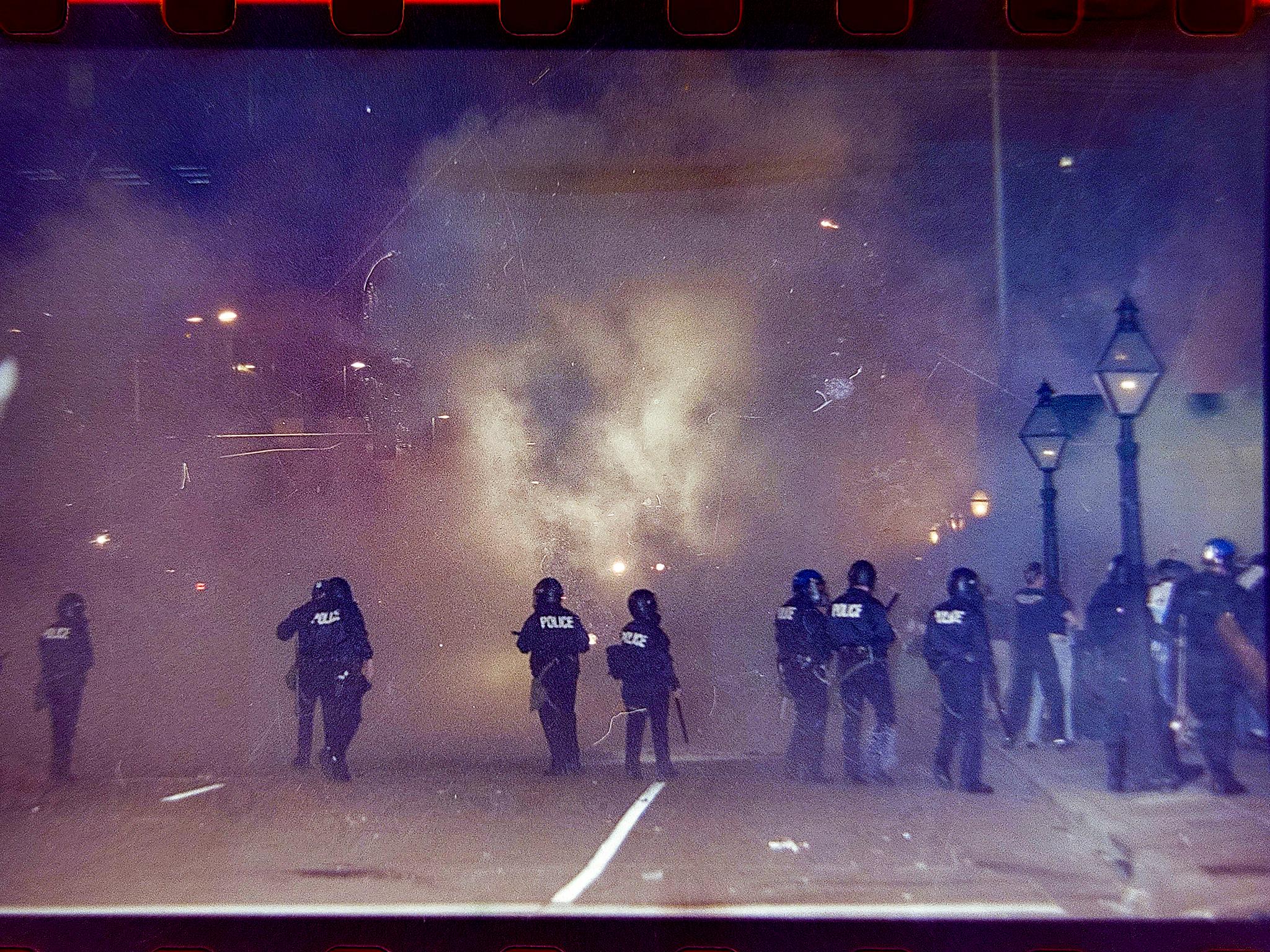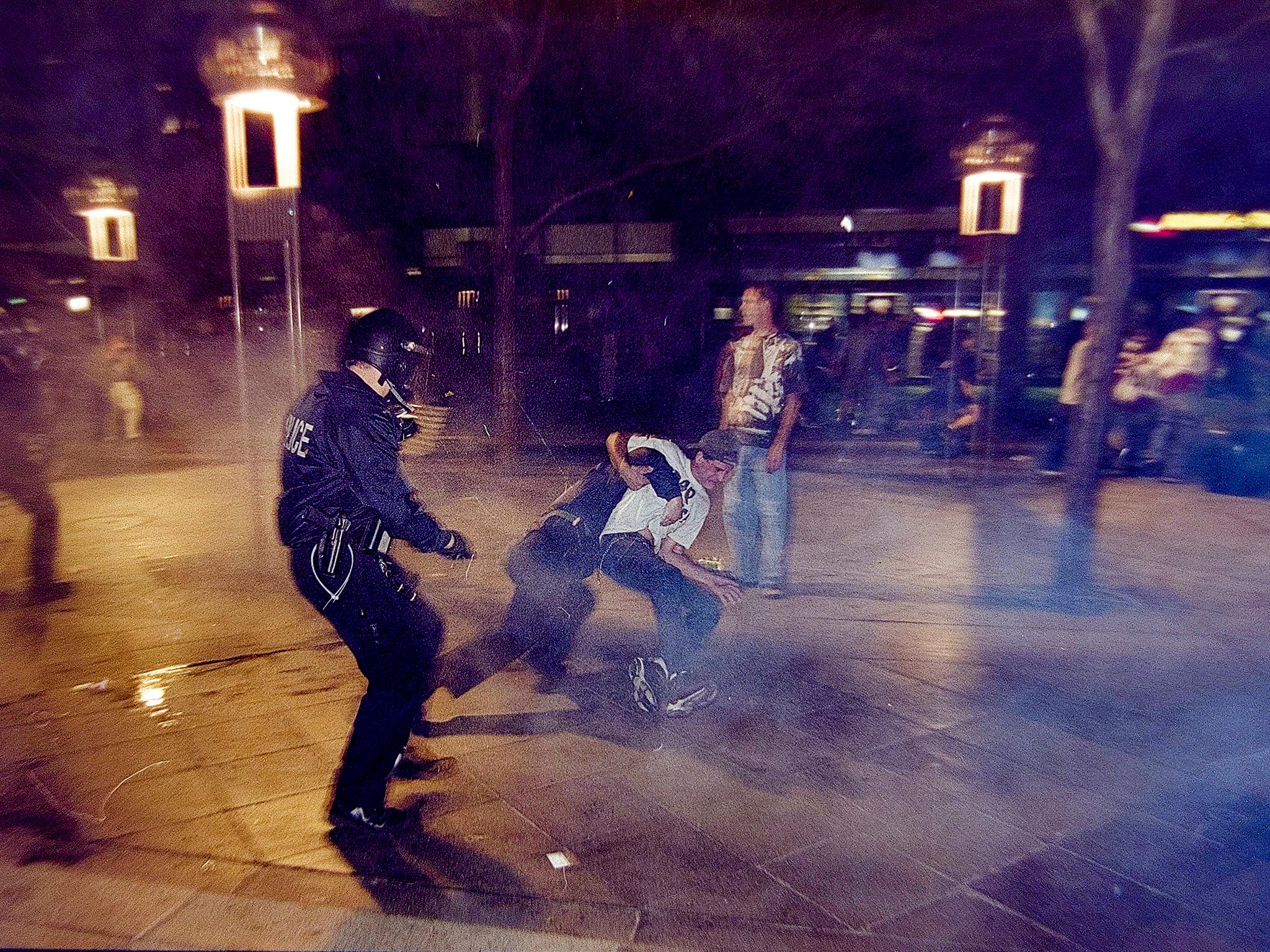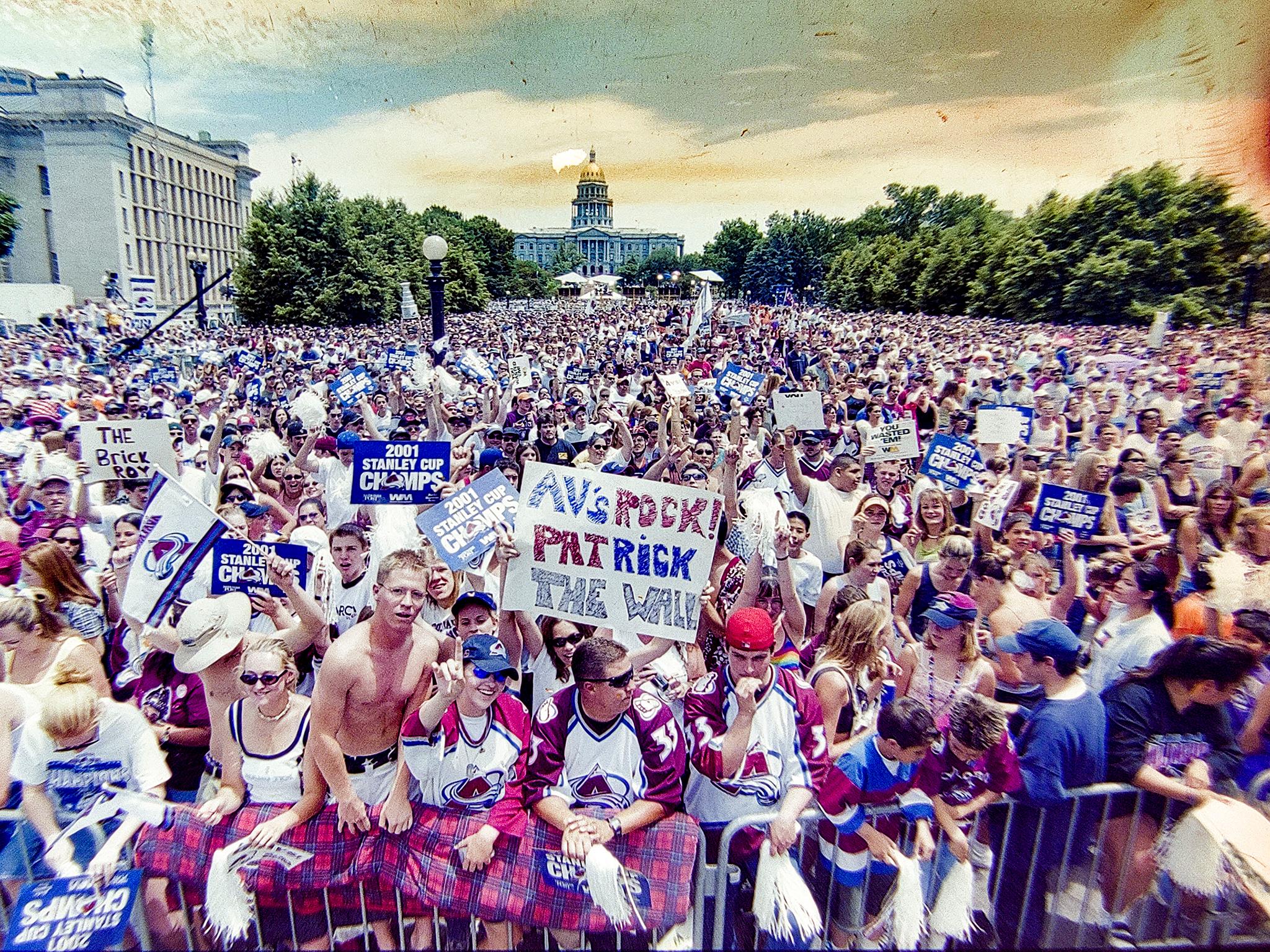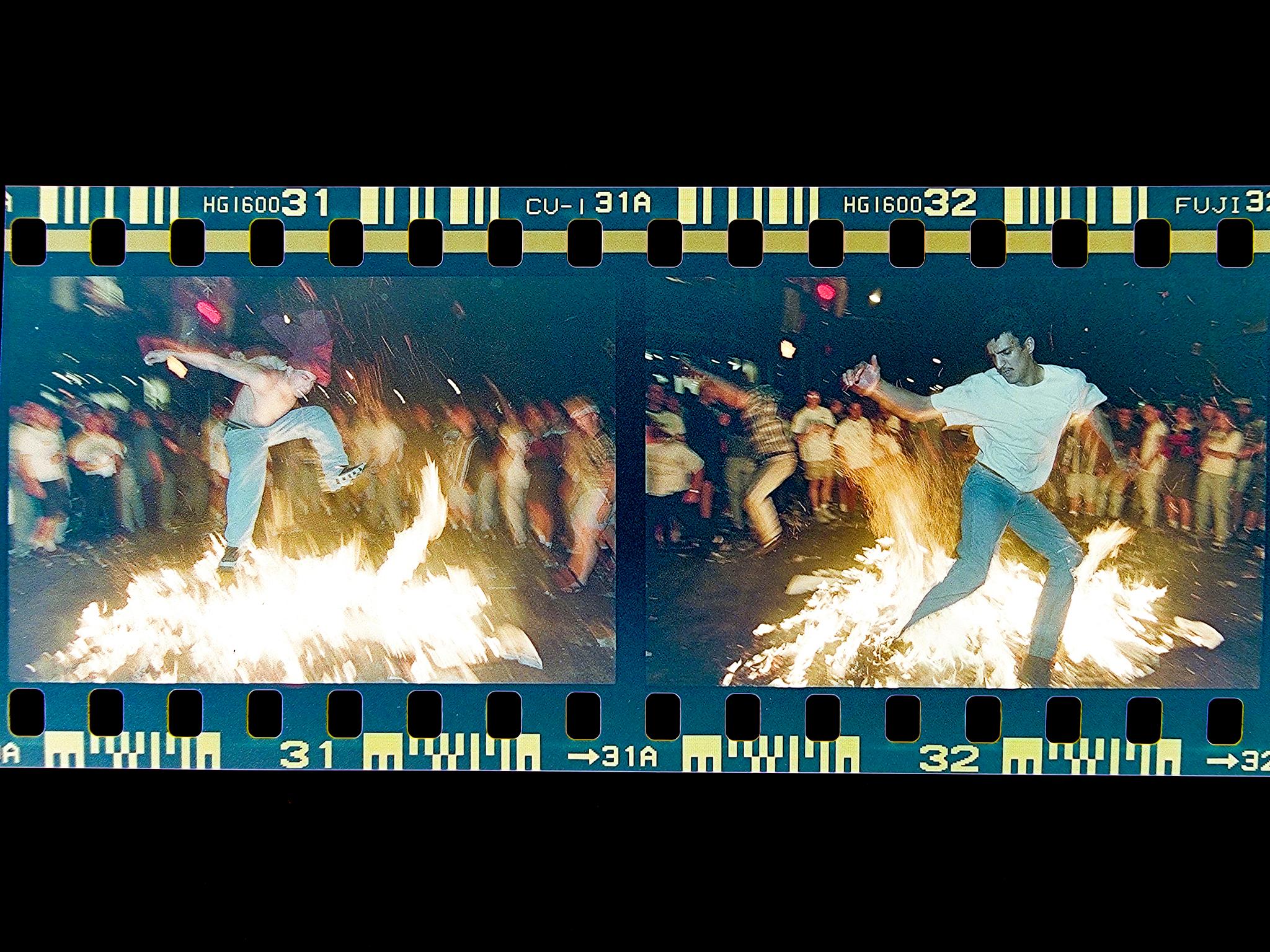Nobody can predict the future, but it's possible that people will flood Denver's streets if the Avalanche win the Stanley Cup Final. For one thing, recent reporting suggests "folks are ready to party." It's been a long couple of years without too much joy, and it's likely people need something to celebrate. Denver police are expecting 25,000 people to head downtown Friday for the game.
There's some precedent for how this could go. The Avs won the Cup in 1996 - the city's first big-league victory in any sport - and again in 2001. Denver went "bonkers" after both.
We dug into the Denver Public Library's archives, as we do, to see what things were like back in the day.
1996: The Avs defang the Florida Panthers
Colorado won the 1996 Stanley Cup in four games flat, clinching the final on a Monday. That night, excited fans flooded LoDo.
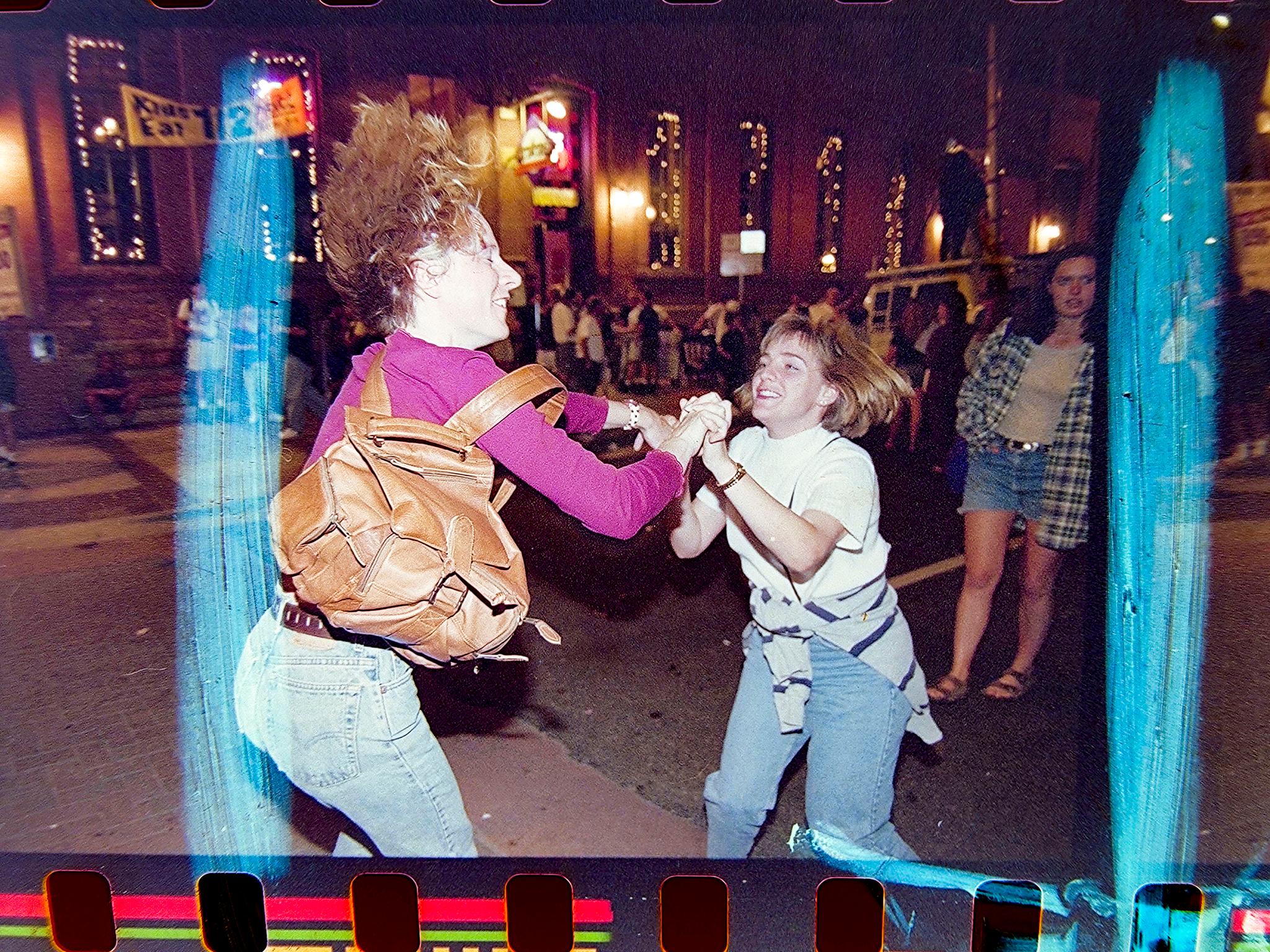
"Lower downtown Denver became the flash point for the raucous postgame celebration," the Rocky Mountain News reported. "Up to 50,000 revelers swarmed Larimer, Blake and Market streets leaving streets littered with trash and motorists helpless to do more than lean on their horns."
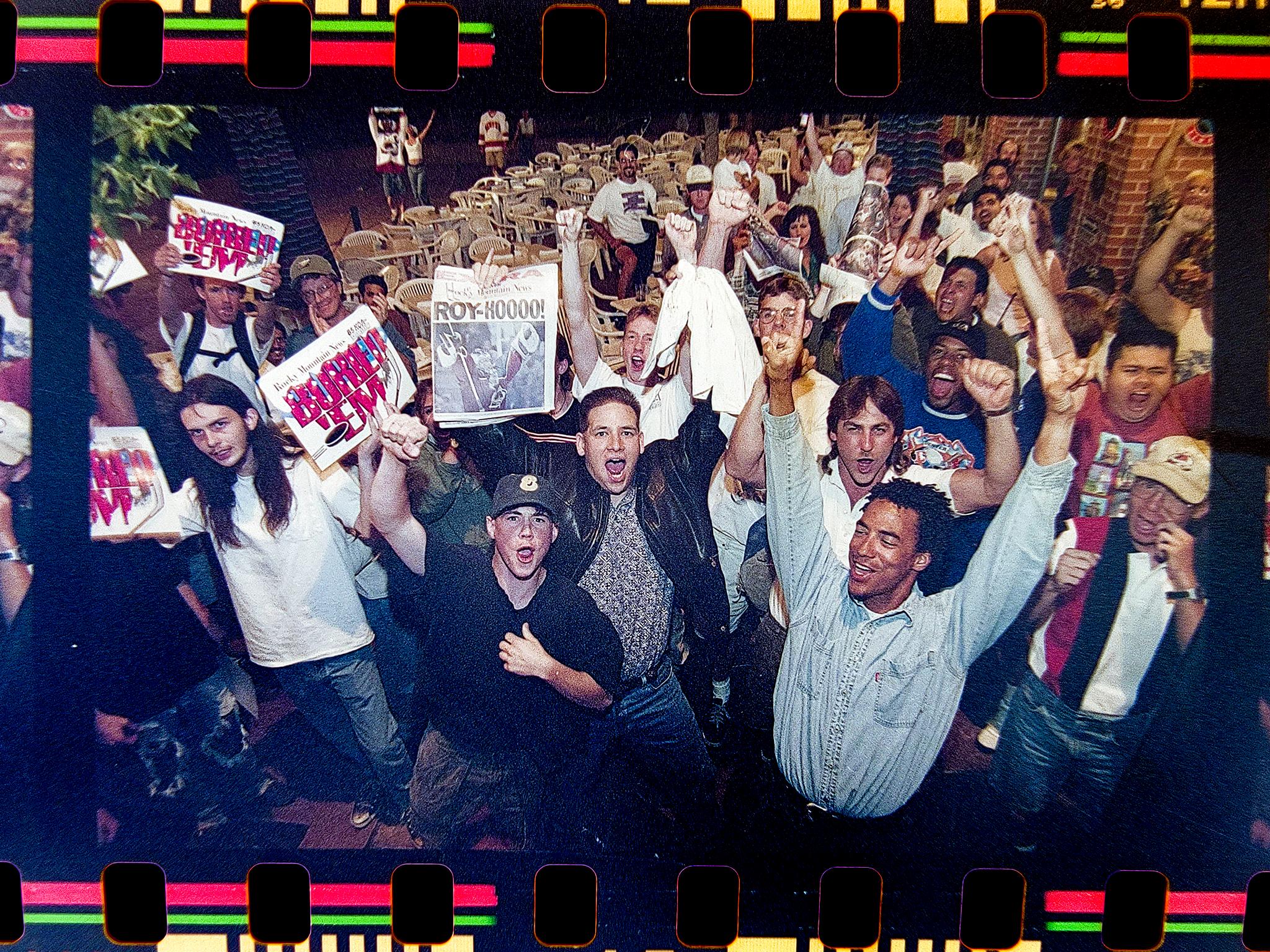
One guy that the Rocky spoke to said: "It's nuts! That's it, right there!"
After midnight, things took a turn. A small group of revelers started a fire. Then, Denver police brought out their gas masks and tear gas. They arrested at least 20 people, according to the Rocky.
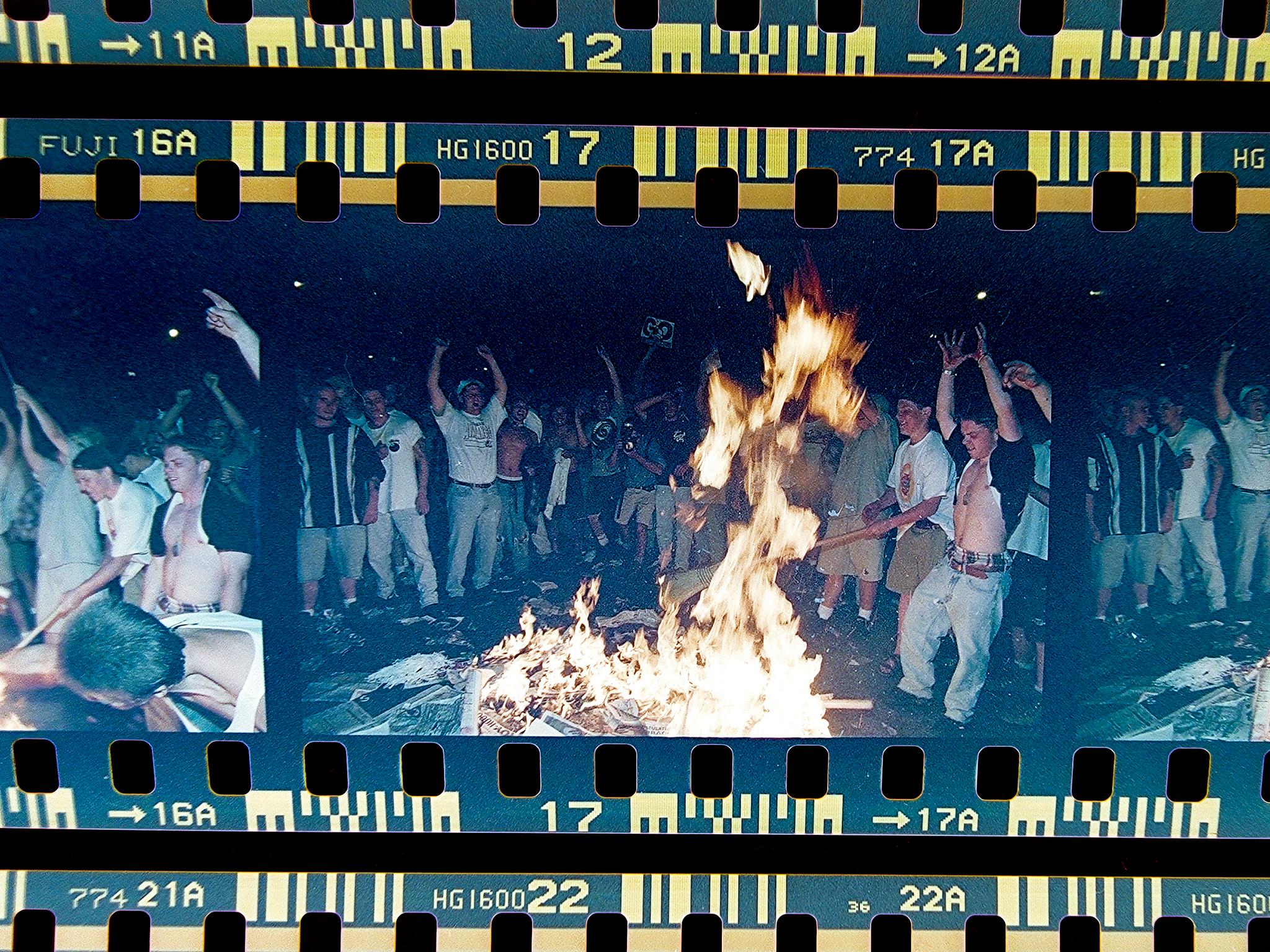
Prior to that night, DPD had been "stung by a string of recent excessive-force allegations" and started using handheld video cameras to tape confrontations, hoping to show they were just doing their jobs, according to a Denver Post story from 1996.
"So far, the camera-carrying officers have turned out only once: to film revelers on Larimer Street the night the Colorado Avalanche won the Stanley Cup," the Post reported a few months after the Av's win. "The tape showed hundreds of rowdy people in Larimer Street around a few bonfires. Police in riot gear using megaphones warned them to disperse and then threw tear gas into the street."
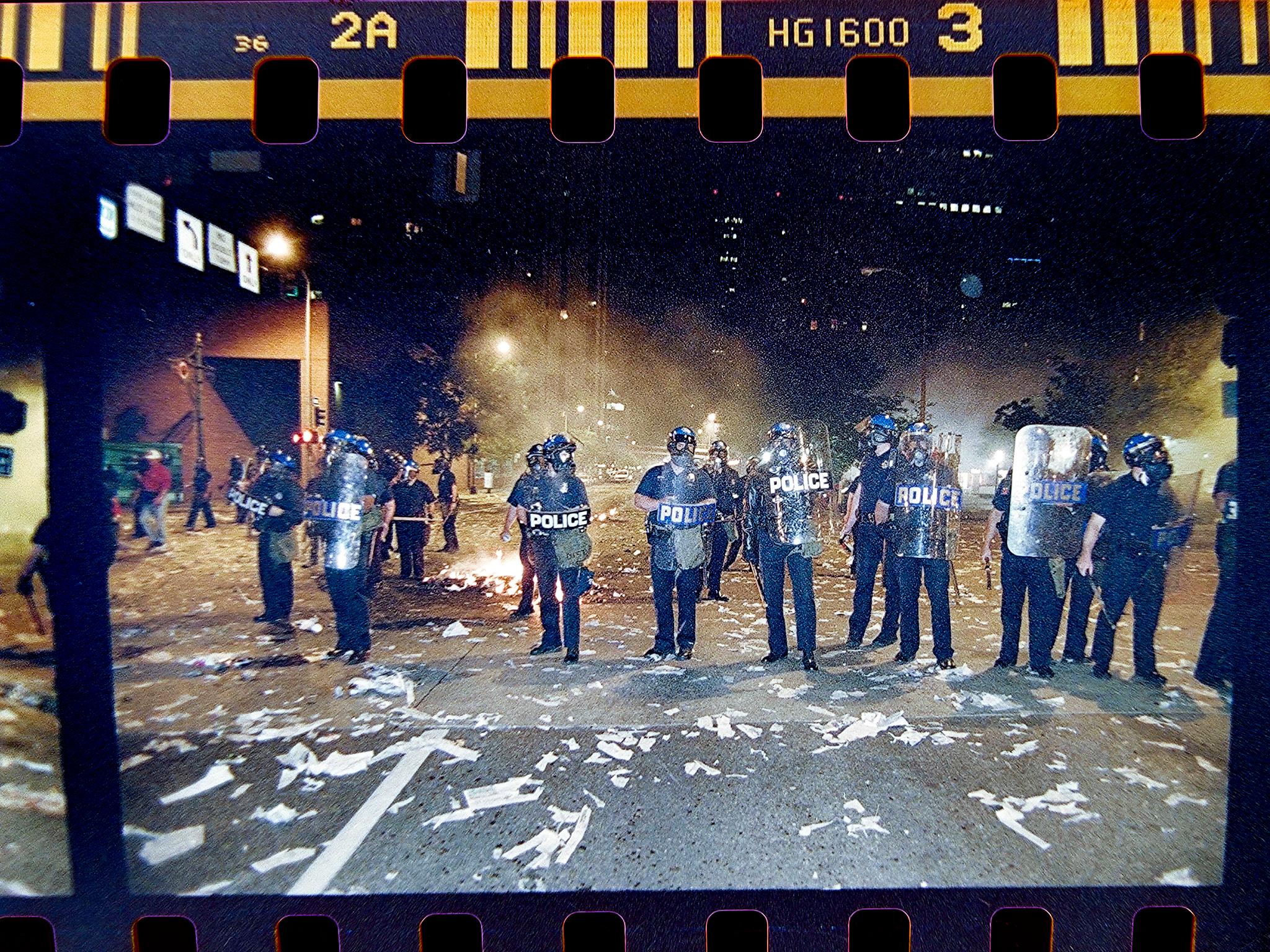
Still, reporting from the next day showed the "riots" weren't that big of a deal, even if police responded like it was.
"In other cities, they turn over cars and break storefront windows," Larimer Square director Randy Rutherford told the Rocky in a June 12 story. "All we had were some broken flowerpots."
A Larimer Square restaurant worker also told them he was walking home from work when police mistook him for a reveler and "gassed" and beat him.
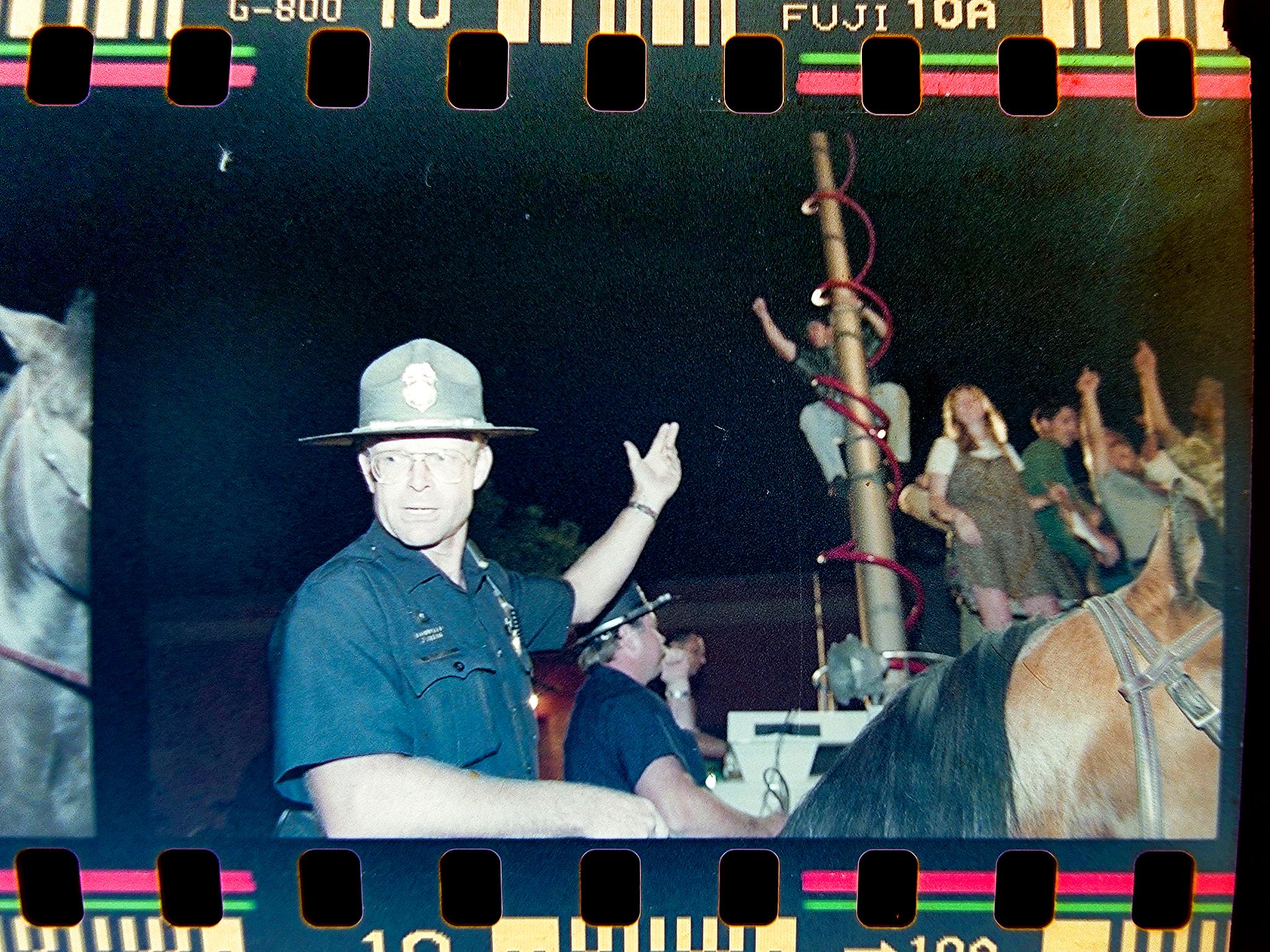
James Whiteside, a former University of Denver history professor and sports historian, said the police's presence likely tipped things into chaos.
"The '96 riot was more a case of too many drunks in a small place, on Larimer Square and on the Mall," he said. "The police decided to intervene with tear gas, and I think that turned it ugly."
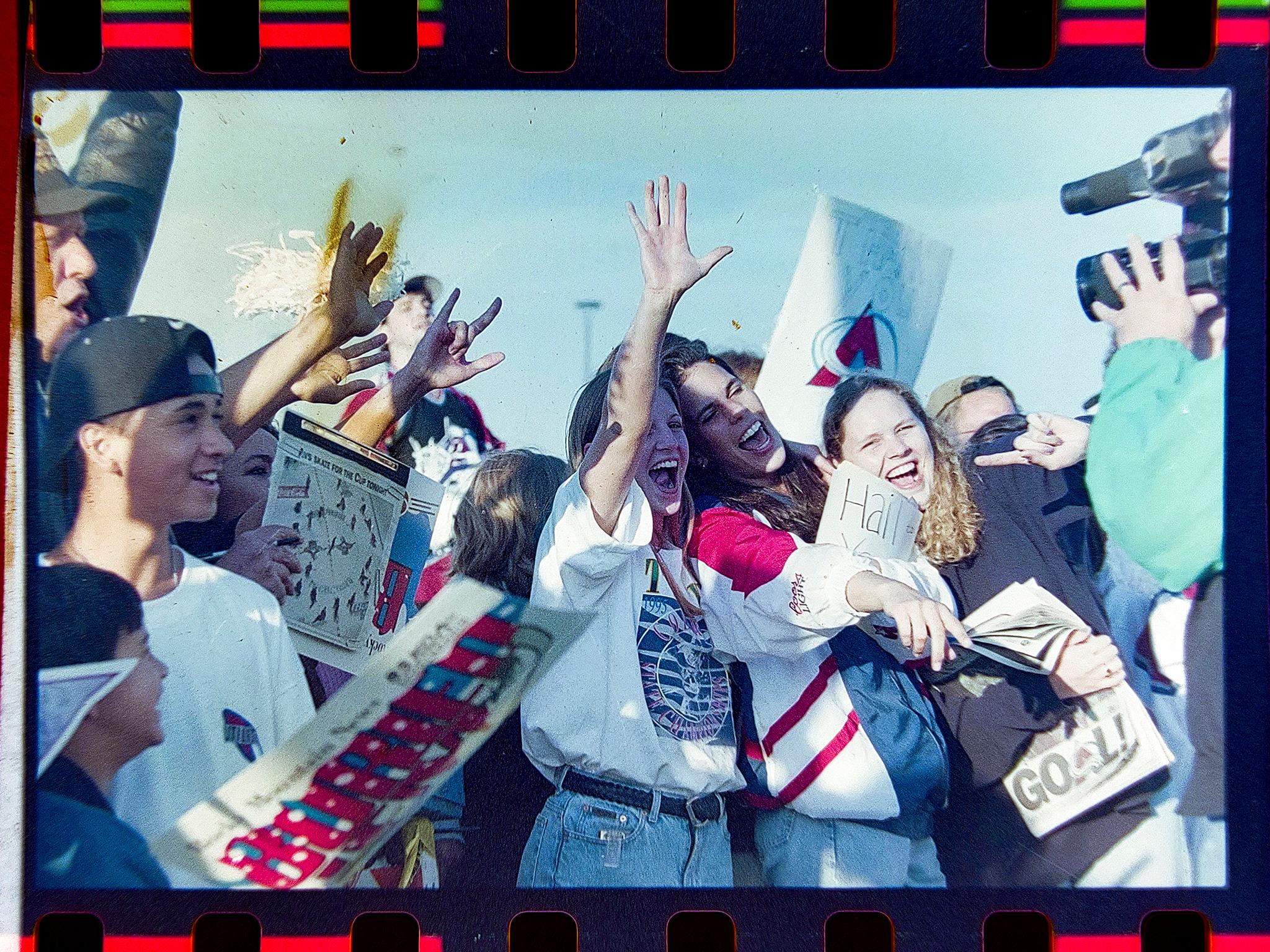
Denverites loved the celebrations, though.
"It's wonderful. It's great to see the city go crazy with just mayhem," one person told the Rocky.
"This is the greatest thing since processed cheese," said another.
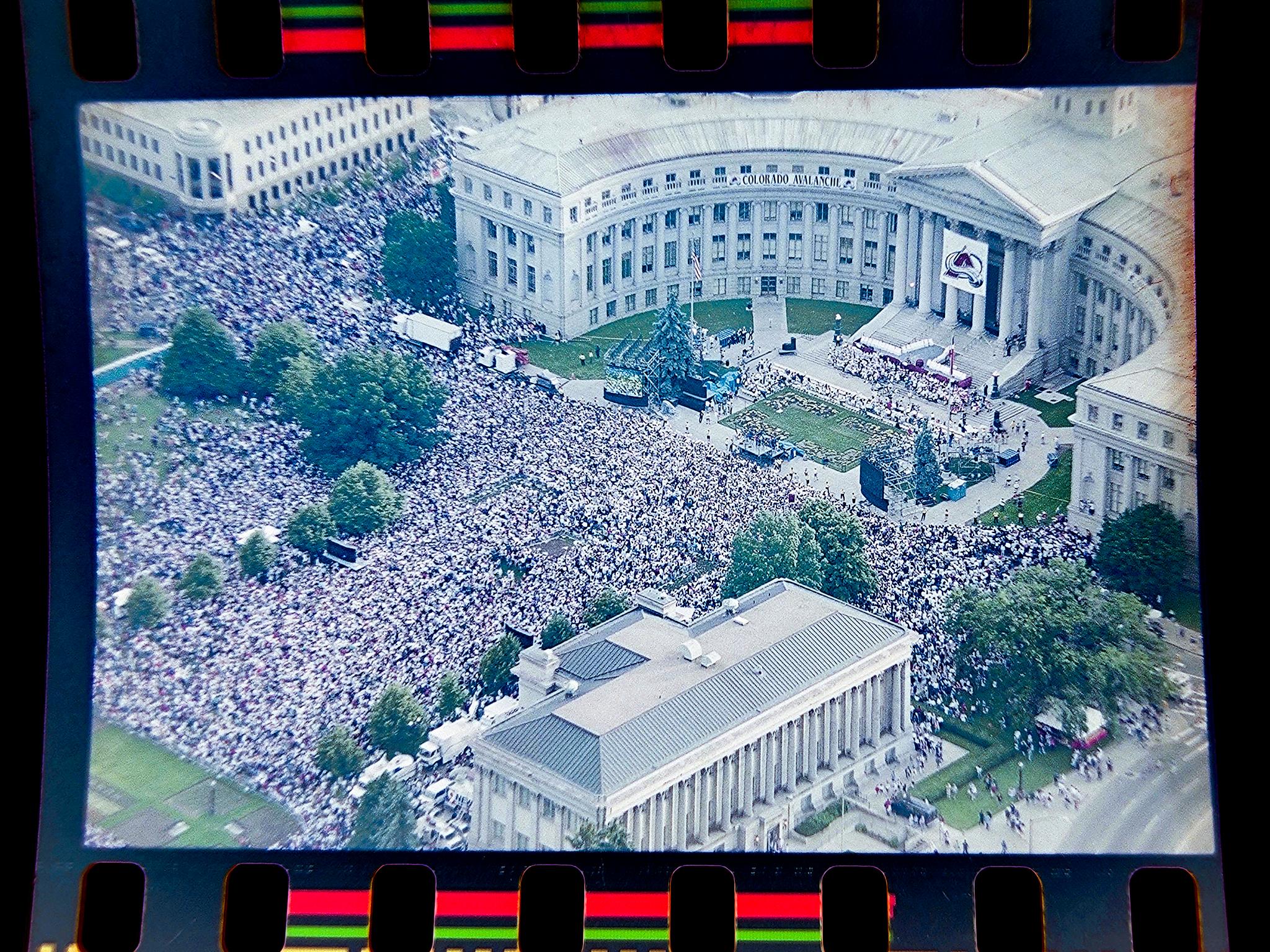
Brian Trembath, a librarian at DPL's Western History Center, told us he was hit by a car that night. He said he just didn't think Denver was ready for such a crazy win. It was the city's first major sports victory, after all: "There was no model for how to celebrate a big event like that in Denver."
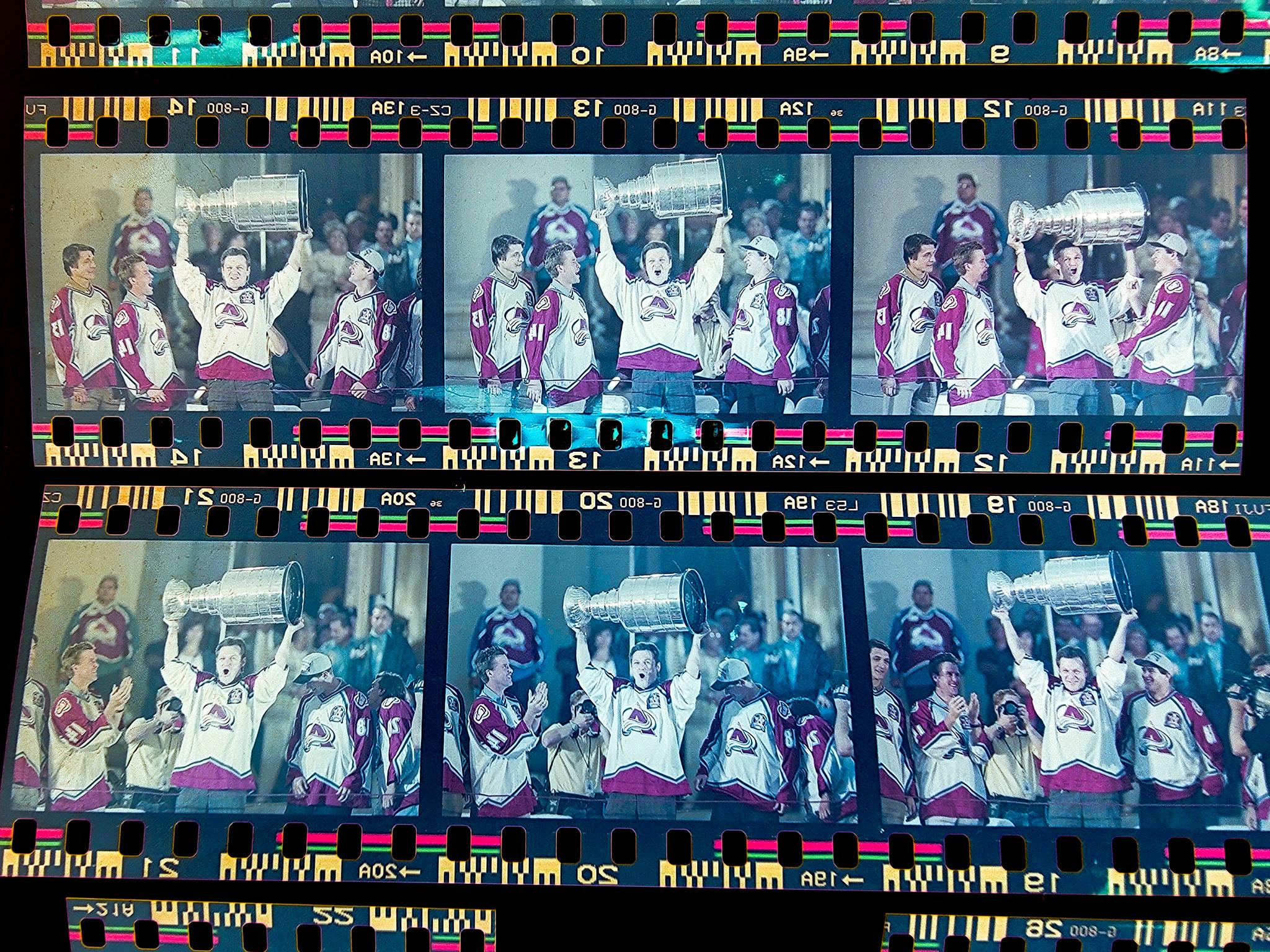
After the sun came up, Avalanche players greeted the city with their trophy at the airport. On June 12, Mayor Wellington Webb invited them to the City and County Building, where thousands showed up to cheer.
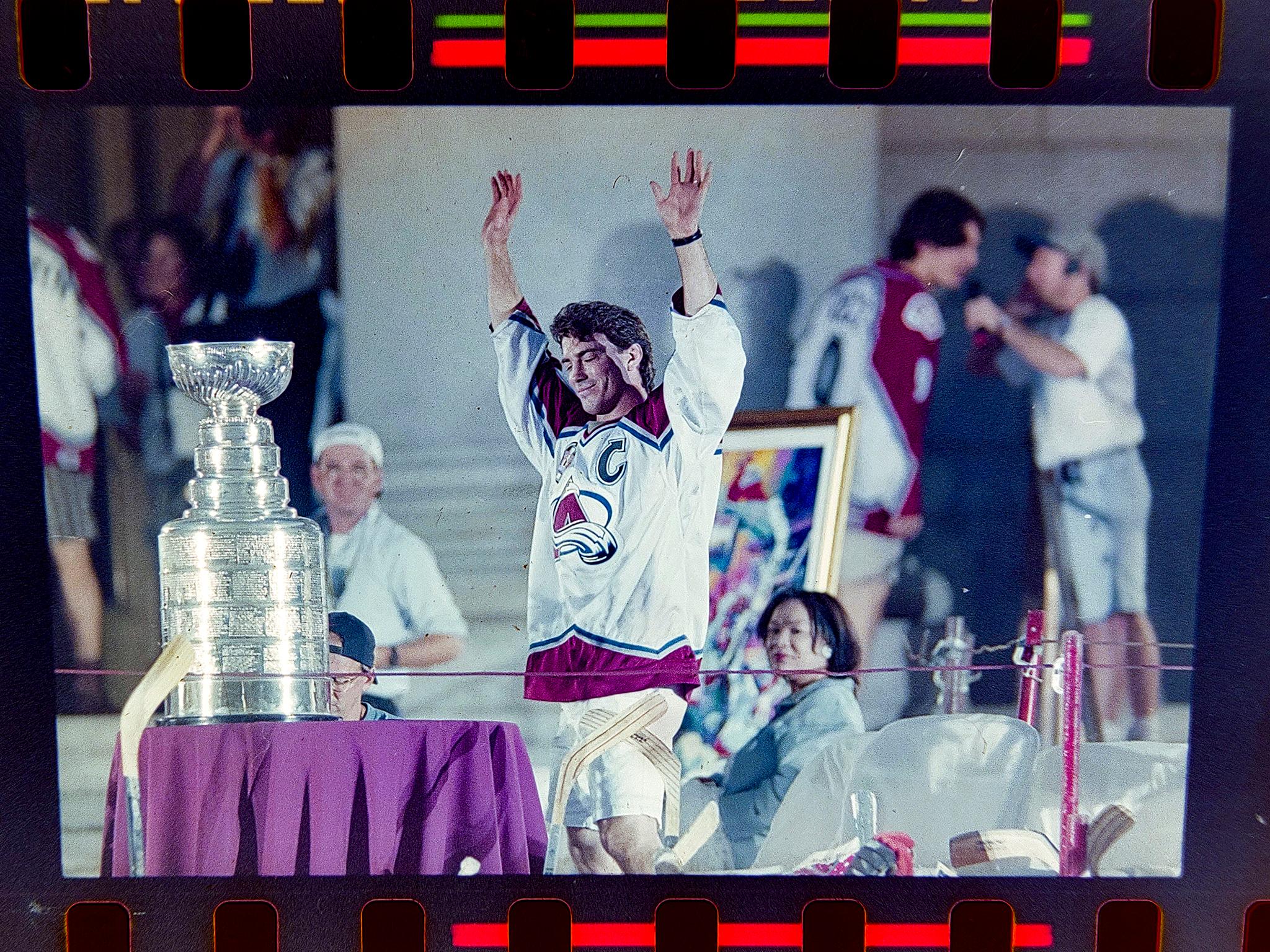
2001: The Avs tame the New Jersey Devils
By the time Colorado beat New Jersey in a seven-game series, Denver had become used to the idea of a little mayhem after a big win. The Broncos won the Superbowl in 1998, producing what Whiteside called a "really ugly" show of excitement and police response.
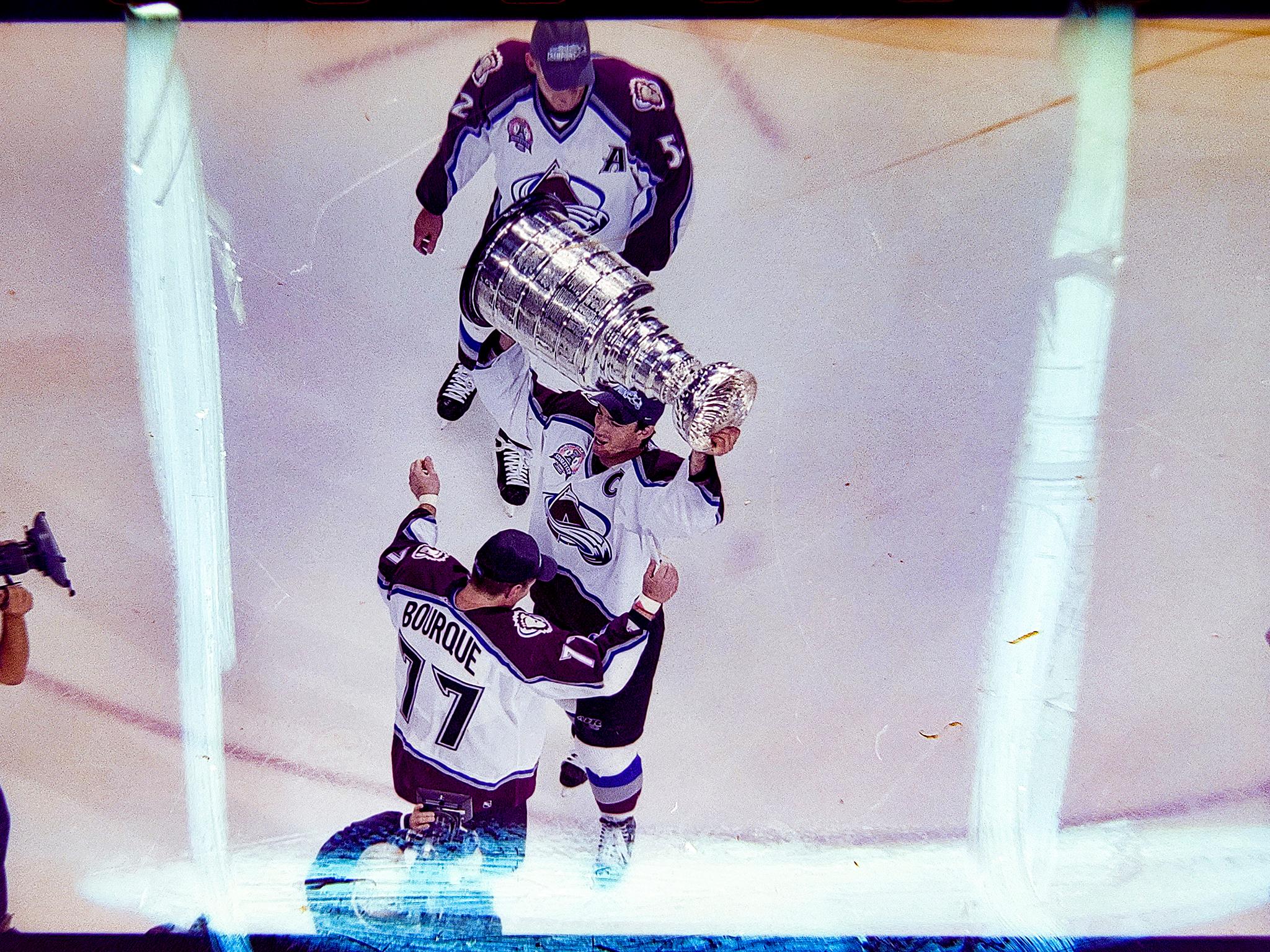
"The prospect of another sports championship for Denver is moving gas masks off the shelves in army surplus stores," the Rocky reported the same day Colorado won the Cup.
In 2001, the night unfolded like it had five years earlier. People flooded the streets to celebrate. Things got rowdy. The cops showed up, this time in greater numbers, and people got arrested.
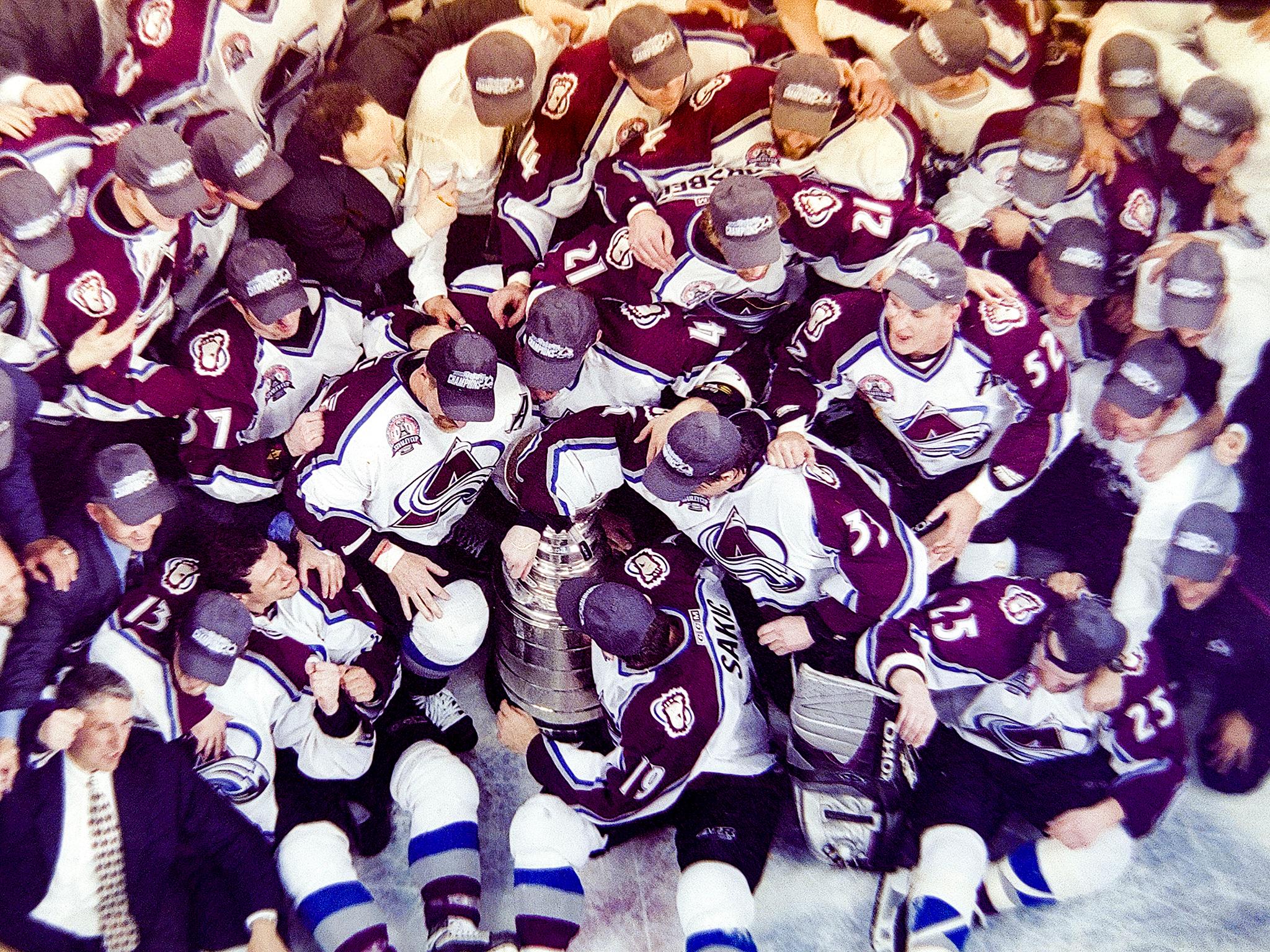
"Up to 50,000 revelers who took to Lower Downtown streets late Saturday and early Sunday were met by 600 police officers who walked street corners, worked bars and generally let people know they were being monitored for bad behavior," the Post reported a few days later. "About 120 people were arrested or taken to the city's detox center."
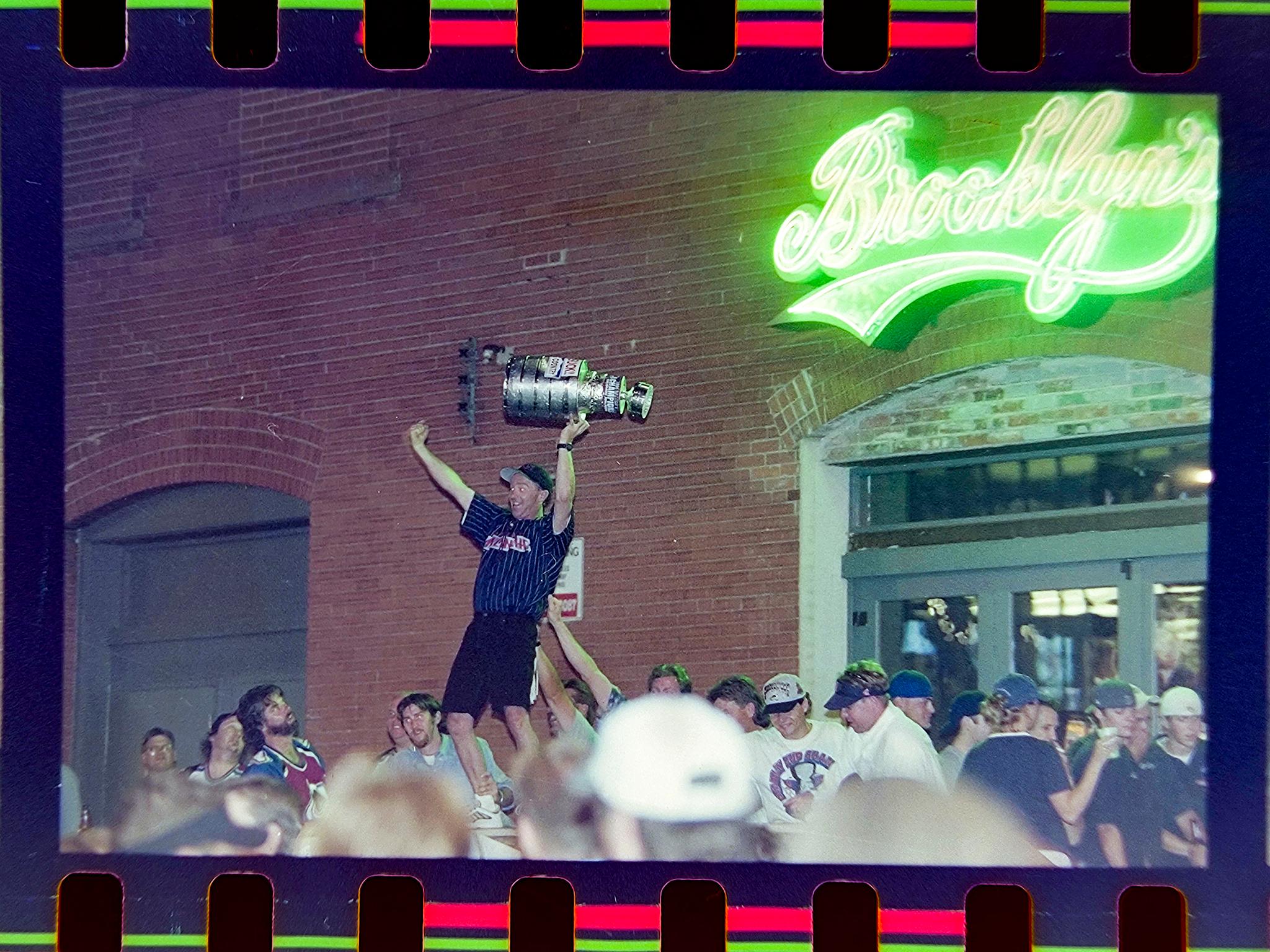
The Rocky noted police blocked traffic coming into town from I-25 and suspended public transit for an hour and a half - all this around 9 p.m. - as people surged into the streets.
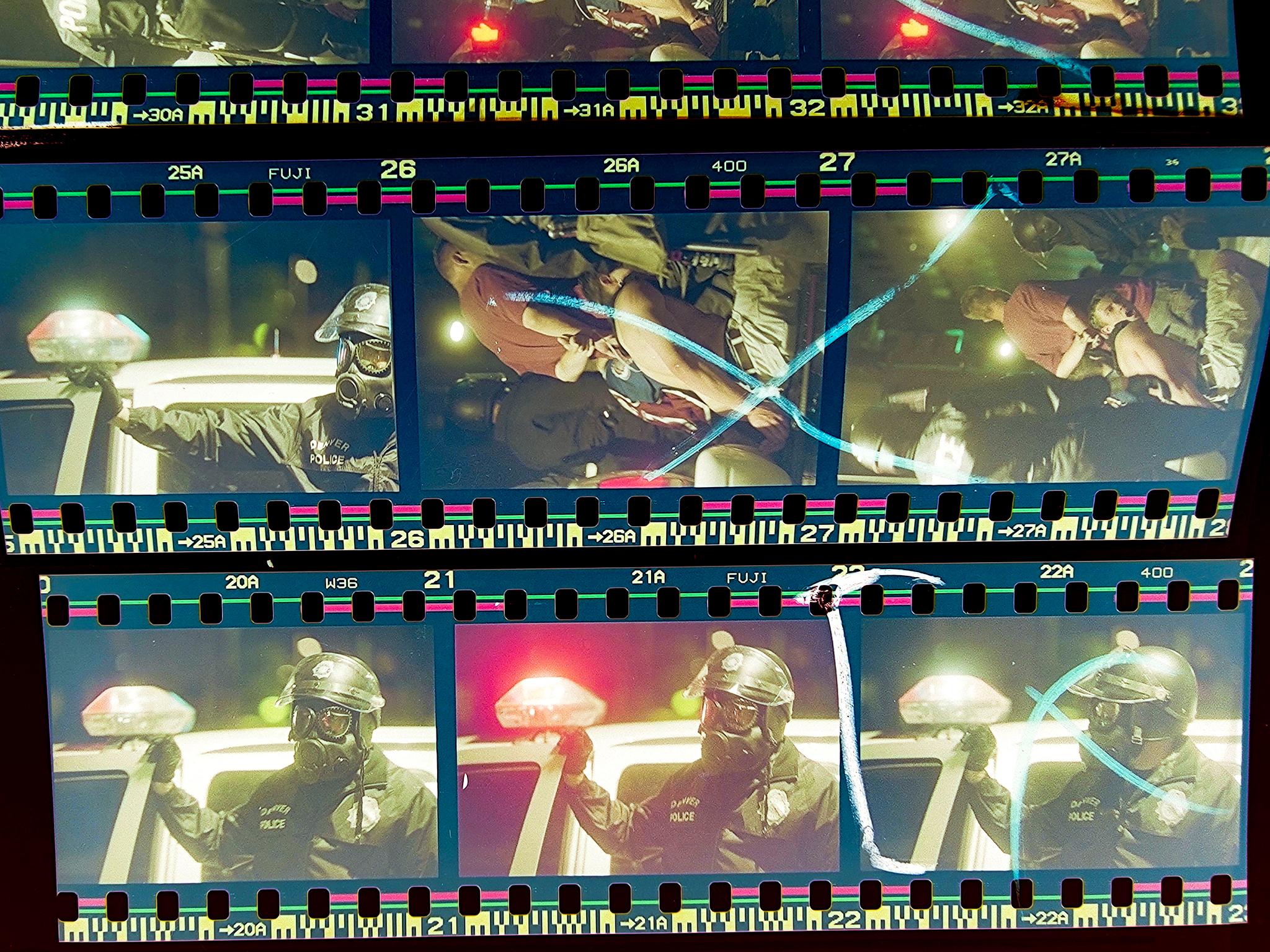
The Rocky published an editorial expressing some residents' exasperation with the party.
"It's the new American tradition. No longer are riots started by the downtrodden and miserable protesting their conditions, but by the upscale and irresponsible, vicariously celebrating other people's success as though they had a Get Out of Jail Free card in their hip pocket."
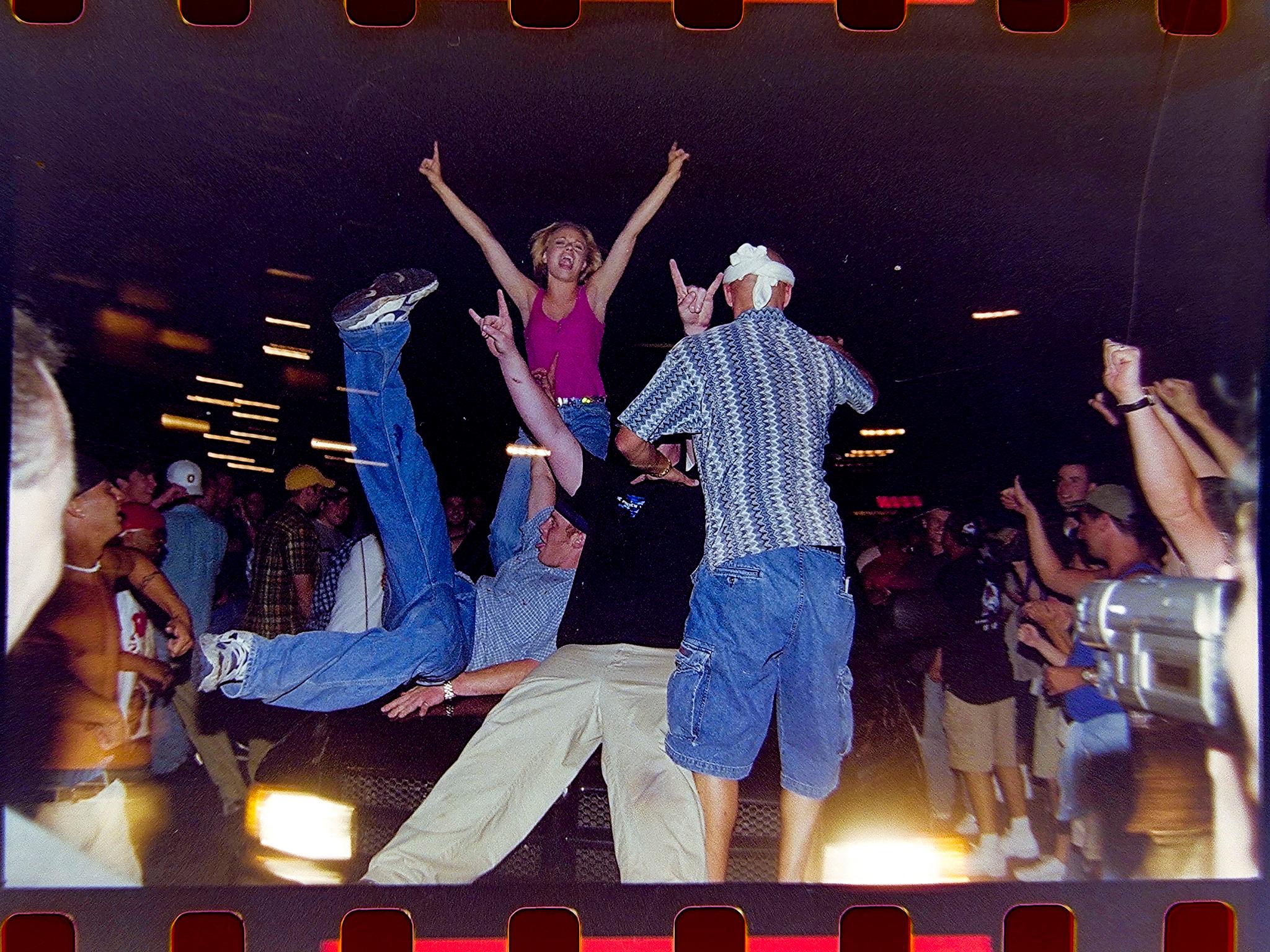
The 2001 Stanley Cup win came on an already busy night in town. A Rockies' game released fans into LoDo as nearby concerts brought others in. This year, if we win, the reaction will come amid protests against the overturning of Roe v. Wade and Pride weekend.
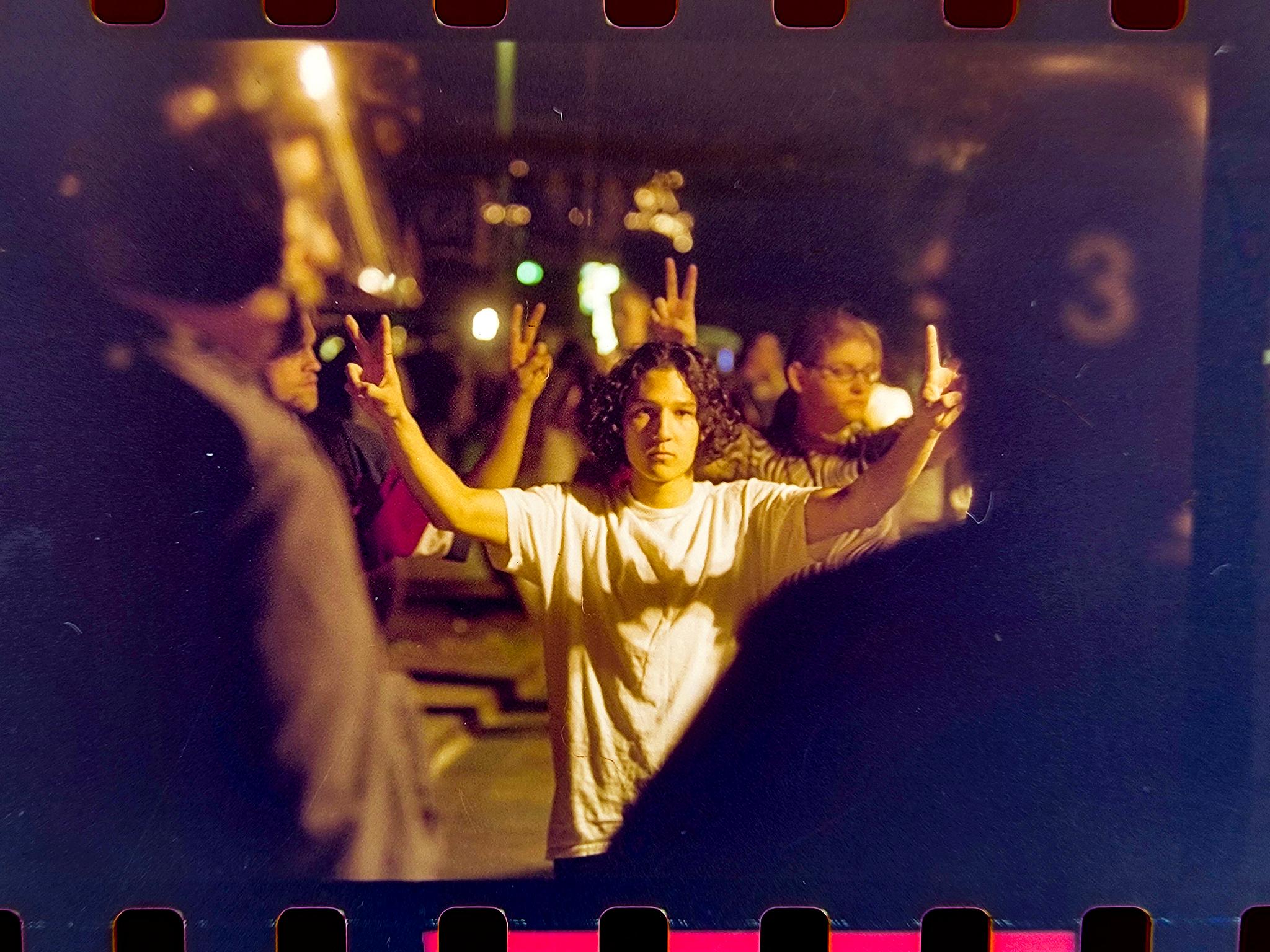
In 1998, the Post reported, Denver spent $145,000 on police overtime and barricades to quell the crowd.
"Crews started cleanup early Sunday morning, and shortly after sunrise there were scattered shards of glass to remind tourists, shoppers and business owners of the night before," they wrote.
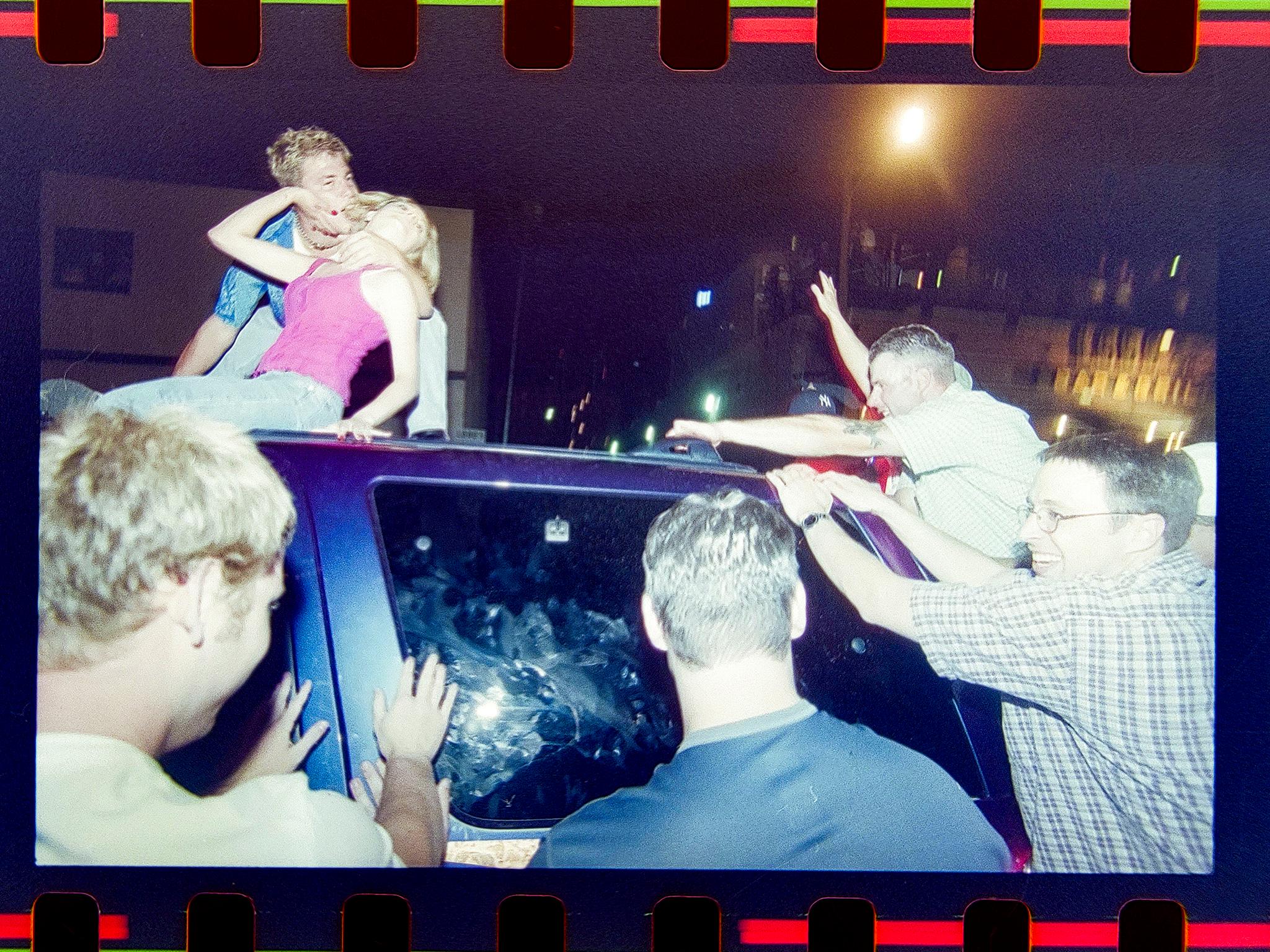
Whiteside, a historian who said he tends to sides with revelers and not so much with the police, said he's not sure why we - as Americans or as humans - always end up taking things so far when it comes to sports. Explanations aren't in his wheelhouse, but historic perspective is.
"I'm never surprised by stupidity and cravenness," he said. "If you want a historian's perspective, it's that there is no bottom."
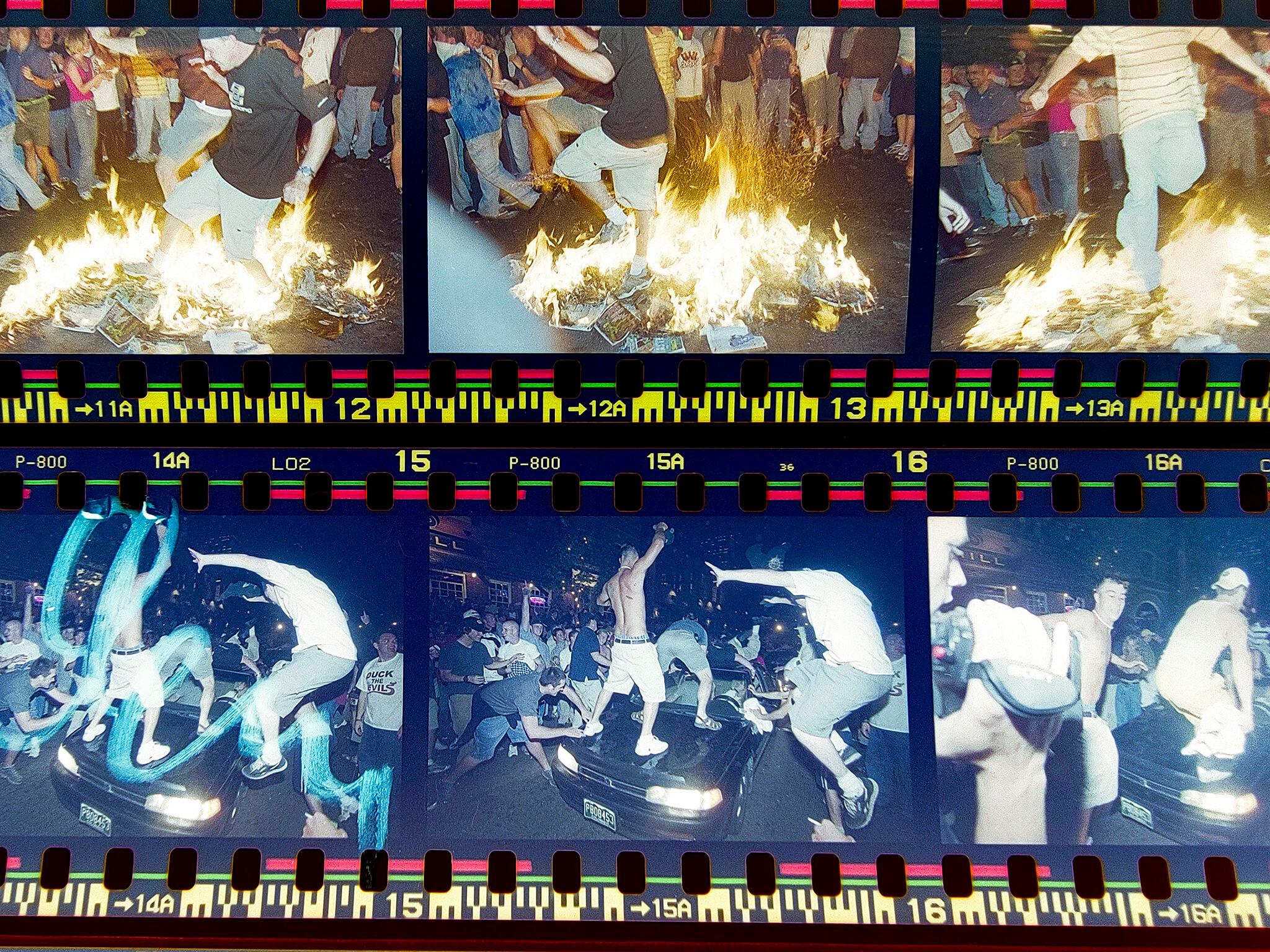
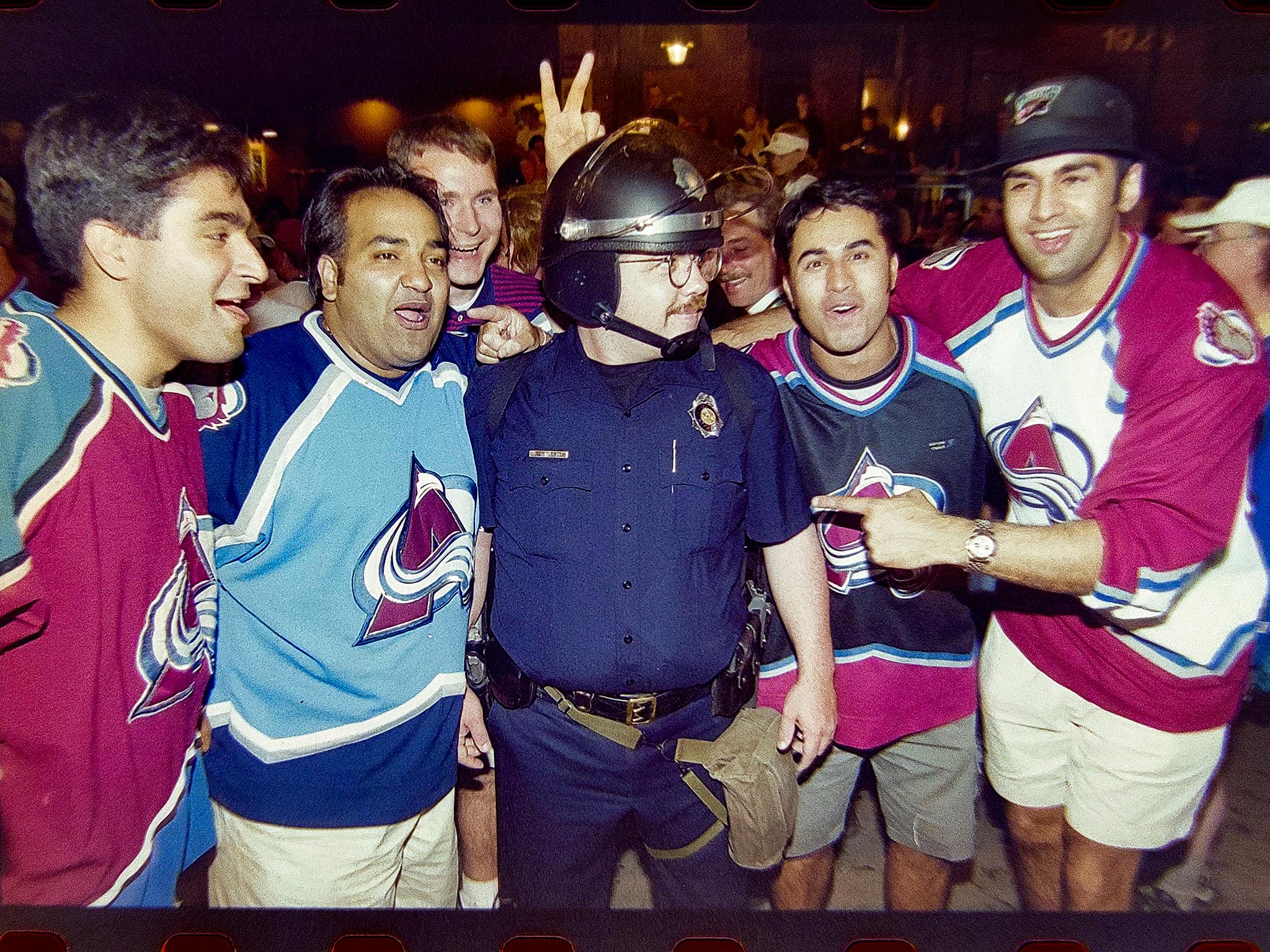
Taking a longer view, he said sports and competition have always been a part of us. It's been tied to the deepest pieces of culture, from precolonial Indigenous communities in the area to mining camps to the modern era.
"Sports have always been embedded - I don't think it's unique to Colorado - but certainly always been embedded in culture and society," he said. "I don't know, is there some genetic defect in our civic makeup that says lets win a championship and go start a riot?"
